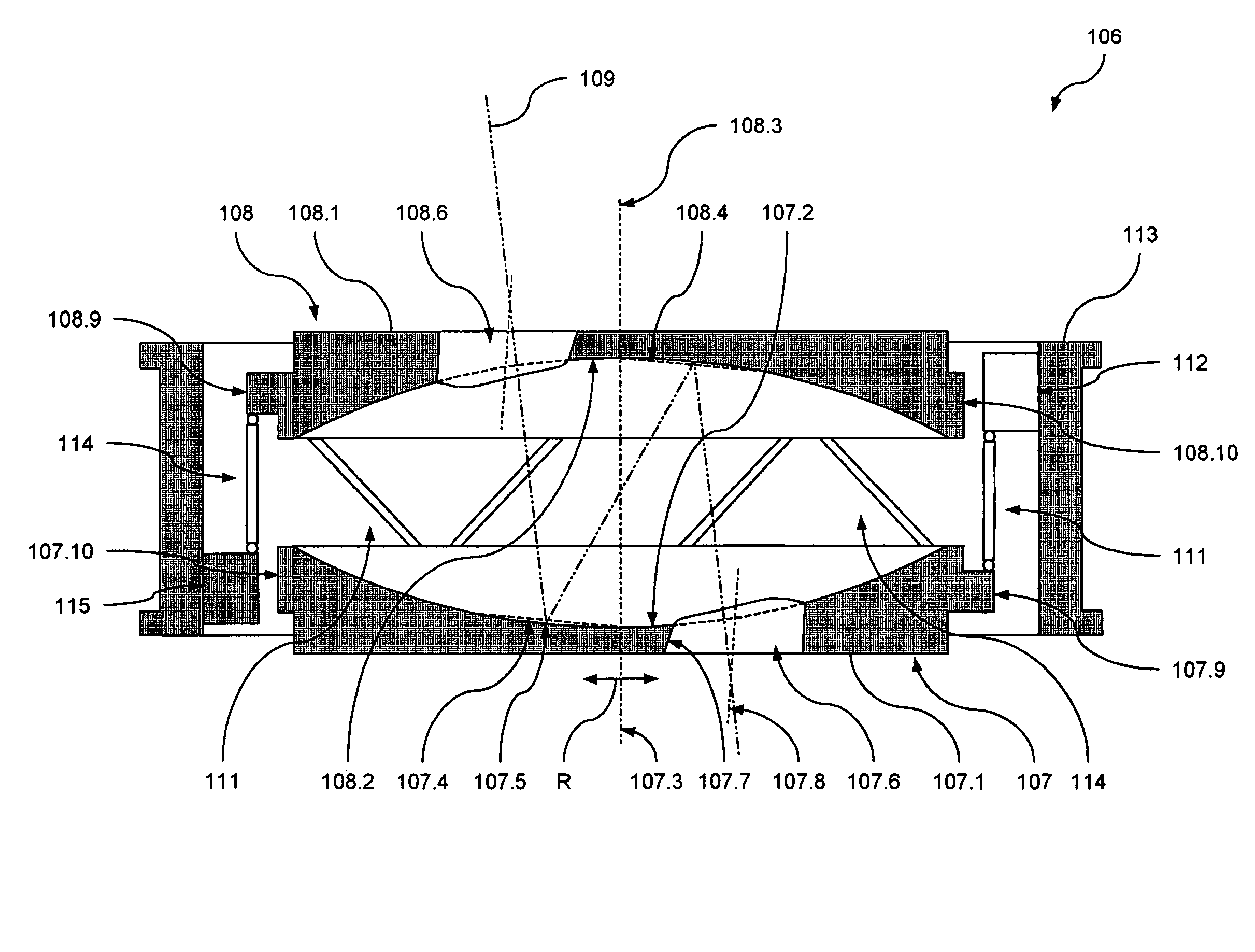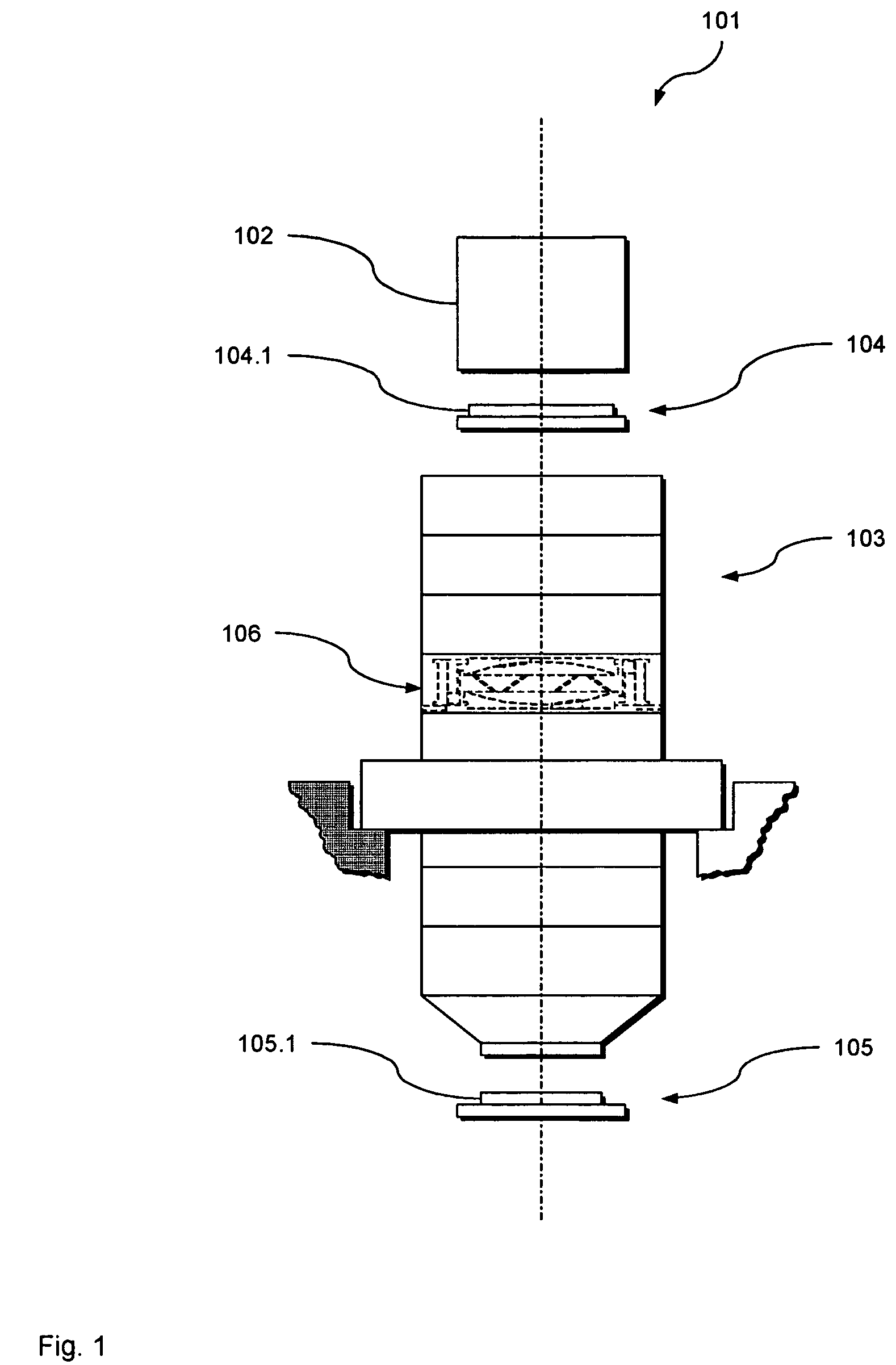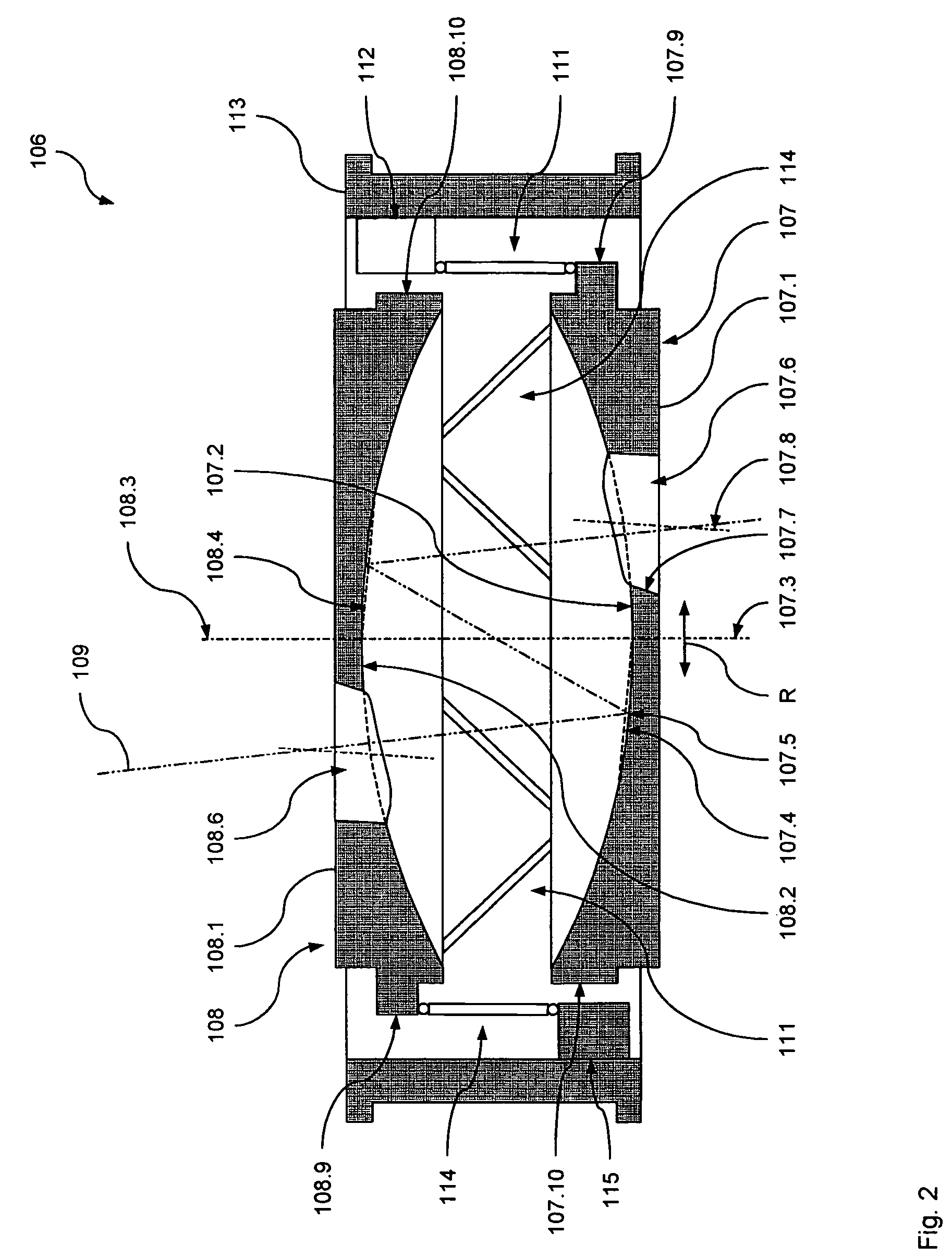Reflecting optical element with eccentric optical passageway
a technology of optical passageway and optical element, applied in the field of optical element and optical element unit, can solve the problems of deteriorating imaging accuracy and less compact design, and achieve good and long-term reliable imaging properties
- Summary
- Abstract
- Description
- Claims
- Application Information
AI Technical Summary
Benefits of technology
Problems solved by technology
Method used
Image
Examples
Embodiment Construction
[0033]In the following, a preferred embodiment of an optical imaging arrangement 101 according to the invention will be described with reference to FIGS. 1 to 3.
[0034]FIG. 1 is a schematic and not-to-scale representation of the optical imaging arrangement in the form of an optical exposure apparatus 101. The optical exposure apparatus 101 comprises an illumination unit 102 and an optical projection unit 103 adapted to transfer, in an exposure process, an image of a pattern formed on a mask 104.1 of a mask unit 104 onto a substrate 105.1 of a substrate unit 105. To this end, the illumination unit 102 illuminates the mask 104.1. The optical projection unit 103 receives the light coming from the mask 104.1 and projects the image of the pattern formed on the mask 104.1 onto the substrate 105.1, e.g. a wafer or the like.
[0035]The optical projection unit 103 comprises a catadioptric optical element system including a plurality of refractive elements, such as lenses or the like, and a plur...
PUM
 Login to View More
Login to View More Abstract
Description
Claims
Application Information
 Login to View More
Login to View More - R&D
- Intellectual Property
- Life Sciences
- Materials
- Tech Scout
- Unparalleled Data Quality
- Higher Quality Content
- 60% Fewer Hallucinations
Browse by: Latest US Patents, China's latest patents, Technical Efficacy Thesaurus, Application Domain, Technology Topic, Popular Technical Reports.
© 2025 PatSnap. All rights reserved.Legal|Privacy policy|Modern Slavery Act Transparency Statement|Sitemap|About US| Contact US: help@patsnap.com



